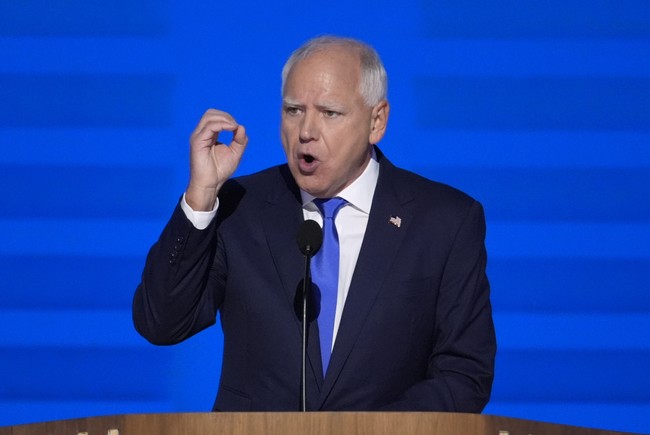Minnesota Governor Tim Walz faced backlash after he shared a deceptively edited video on social media, which falsely suggested that President Donald Trump is prioritizing the construction of a ballroom at the White House over all other matters. The clip, circulated by various accounts, has sparked significant controversy as it misrepresents comments made by White House Press Secretary Karoline Leavitt.
The video in question distorts Leavitt’s remarks to imply that the ballroom renovation is Trump’s foremost concern, ignoring other critical issues. In reality, Leavitt stated that the ballroom was a priority in the context of potential renovation projects, not in relation to broader policy matters. Walz, during his comments on October 23, 2023, reiterated this misrepresentation, stating, “The White House Press Secretary said the top priority is the ballroom.”
Critics have accused Walz of dishonesty, labeling him a “pathological liar.” This sentiment echoes sentiments expressed by various commentators who argue that such mischaracterizations are indicative of a broader pattern among some Democratic politicians. As one social media user remarked, Walz’s repetition of the misleading narrative only underscores existing concerns regarding his credibility.
The misleading video has gained substantial traction online, reportedly amassing over 9 million views on the platform X. Some users have traced the origins of the edited clip back to specific accounts, highlighting the role of misinformation in contemporary political discourse.
The controversy surrounding this video comes against a backdrop of ongoing political tensions in the United States, particularly related to the recent government shutdown. Critics of the Democratic Party have pointed to this incident as part of a larger trend of misinformation and political maneuvering, arguing that it detracts from substantive discussions on policy.
In light of these events, concerns about the integrity of political communication have resurfaced, emphasizing the importance of fact-checking and responsible sharing of information. As the situation develops, both sides of the political spectrum will likely continue to engage in a heated debate over the implications of these narratives and their impact on public perception.
In a political landscape increasingly defined by misinformation, Walz’s actions highlight the challenges facing voters as they navigate competing narratives and strive to discern the truth.
